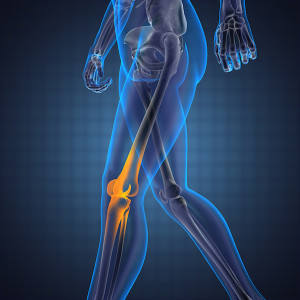
Tendonitis is swelling or irritation of a tendon which are the thick fibrous cords that connect the muscle and bone. This condition leads to pain and tenderness right outside the affected joint.
Orthopedic Institute of the West, led by accomplished board-certified orthopedic surgeon Dr. Brandon Gough, provides hip and knee surgery to patients in Phoenix, Scottsdale, Arizona, and surrounding communities and towns in this stellar part the nation.
TYPES OF TENDONITIS
Tendonitis can develop in any tendon. However, it commonly occurs around the elbows, knees, shoulders, heels, and wrists. Following are some familiar names for the various types of tendonitis conditions:
- Pitcher’s shoulder
- Swimmer’s shoulder
- Tennis elbow
- Jumper’s knee
- Golfer’s elbow
A majority of tendonitis cases can be adequately addressed with rest, medication, and physical therapy to decrease the pain. However, if the tendinitis is severe and causes a tendon to rupture, the patient may require surgery.
CAUSES
Tendonitis may occur due to a sudden injury. However, the development of this condition is more likely due to the repetitive movement of a specific joint over time. A majority of people develop tendonitis due to their work or hobbies involving repetitive movements which create pressure on the tendons.
It is crucial to use the correct technique, especially when undertaking repetitive motions in sports or work-related activities. The use of incorrect techniques can put excessive stress on the tendon. For instance, overloading the tendon can cause tennis elbow leading to tendonitis.
Diagnosis
The hip and knee surgeon usually diagnoses tendonitis during a physical examination of the patient. They may order imaging tests and x-rays as well, if necessary. This will help them rule out other conditions that may be leading to the patient’s symptoms.
TREATMENT
Tendonitis treatment aims to reduce the pain and inflammation that the patient is experiencing. Sometimes the patient only needs to rest, use cold compresses, and take over the counter medications to let the tendonitis resolve on its own without the need for any further treatment.
MEDICATIONS
The surgeon may recommend the following medications to treat tendonitis:
Pain Relievers
Naproxen sodium (Aleve), aspirin or ibuprofen (Motrin IB, Advil, and others) may help offer relief from the pain and discomfort associated with tendinitis.
Corticosteroids
At times, the doctor may inject a corticosteroid drug around a tendon to address the tendinitis. Cortisone injections decrease swelling and can help in relieving the pain.
Platelet-rich plasma (PRP)
In PRP treatment, a sample of the patient’s blood is taken and spun in a centrifuge to separate the platelets and other healing factors. This solution is then delivered via injections into the site of the chronic tendon irritation.
Physical Therapy
The patient may find a program of specific exercises developed to stretch and strengthen the impacted muscle and tendon to be useful. For example, the use of eccentric strengthening which focuses on the contraction of a muscle while it is lengthening has been proven to be a very successful treatment for various chronic tendon conditions. It is now used as the first line of treatment to address tendinitis.
SURGICAL AND OTHER PROCEDURES
In cases where physical therapy has been ineffective in relieving the symptoms of tendinitis, the doctor may recommend the following:
Dry Needling
In this procedure, the surgeon makes tiny holes in the tendon using a fine needle to encourage factors involved in the healing of the tendon.
Ultrasonic Treatment
This treatment is a minimally invasive one that involves placing a tiny incision to insert a special device that eliminates tendon scar tissue using ultrasonic sound waves.
Reliable board certified orthopedic surgeon Dr. Brandon Gough receives patients from Phoenix, Scottsdale, Arizona, and other neighborhoods and communities in this part of Arizona for hip and knee surgery.
For more information about hip and knee procedures and treatments by Arizona Board certified orthopedic surgeon, Brandon Gough, M.D., please click here or call us at 602-359-3088. Taking new patients in and around Phoenix, Scottsdale, Glendale, Tempe, Mesa and surrounding Arizona cities.


